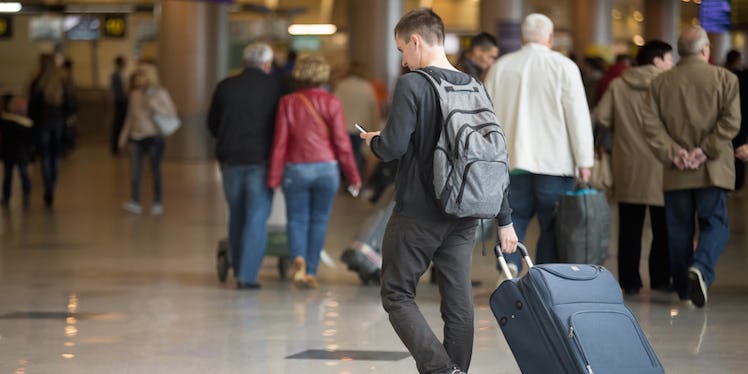
The US Government Might Stop You At The Border Because Of What You Tweet
Privacy advocates are very concerned about the fact that foreign visitors will soon be asked to tell US authorities about their social media accounts, The Intercept reports.
This change, which was put forward by US Customs and Border Protection (CBP) over the summer, is awaiting approval from the Office of Management and Budget, and could occur as soon as December.
If it's ultimately approved, foreign visitors to the US from countries eligible for a visa waiver -- which allows them to come to the US for 90 days or less -- will be asked to provide "information associated with [their] online presence."
This essentially means that when travelers are filling out customs forms, they will be required to tell the US government about their social media accounts.
Some might hear this and think, "What's the big deal? I have nothing to hide."
That might be true. But consider how many people you're connected to online: even indirectly.
This is why civil liberties groups and privacy advocates are pushing back against this move.
A letter written by 11 civil liberties groups – including the American Civil Liberties Union (ACLU) – stated,
It appears that even if a friend or associate has not directly interacted with the applicant on social media, the agency will ferret out connections; if a 'follower' of an applicant raises a red flag for the agency, the applicant herself may be denied permission to travel to the United States.
Simply put, if you're even loosely connected with someone who raises concerns for the US, it could prevent you from gaining entry into the country.
Moreover, as the letter highlights, this could also impact Americans.
Millions of tourists and businesspeople travel to the United States from VWP program countries every year; many of these travelers are likely to have business associates, family, and friends in the U.S., and many of them will communicate with their contacts in the U.S. over social media. This data collection could therefore vacuum up a significant amount of data about Americans' associations, beliefs, religious and political leanings, and more, chilling First Amendment freedoms.
David Kaye, the UN special rapporteur on the right to freedom of opinion and expression, also raised concerns about this. He described the parameters surrounding the information being collected as "vague and open-ended."
Only innocent people are going to give you their real information.
He also highlighted that it's unclear whether the CBP and its parent agency – the Department of Homeland Security (DHS) – will share information with other government agencies, including "law enforcement and intelligence authorities."
Relatedly, The Intercept recently released leaked documents that revealed the CBP works alongside the FBI, and uses the information collected on passengers to screen for potential informants.
They look for vulnerabilities – such as people seeking asylum – and try to use them to pressure people into becoming informants.
Responding to this report, the ACLU said the government has been "using the border as a dragnet to pressure people into becoming informants."
Given this, it's understandable why many are concerned about the CBP's desire to collect information about travelers' social media accounts.
The CBP provided The Intercept with a statement on this that said,
[Collecting social media information] may help detect potential threats because experience has shown that criminals and terrorists, whether intentionally or not, have provided previously unavailable information via social media that identified their true intentions.
The statement added that the collection of this information would not be used to prevent travel on the basis of an applicant's "political views, race, or religion.”
According to The Intercept, the Office of Management and Budget has 60 days to either ask the CBP to amend its proposal or sign off on it.
Amending it would not have anything to do with issues of privacy or civil liberties, however. It is more concerned with "paperwork and cost."
This is definitely something both foreign travelers to the US and American citizens should continue to pay attention to, particularly as we keep running into issues of privacy in our increasingly digitalized world.